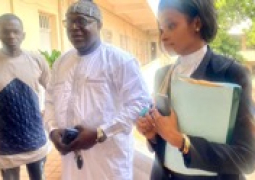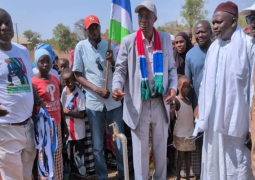
She was speaking at a two day briefing with the steering committee in Basse. The briefing aimed at increasing understanding and knowledge on Social Protection in general and what support to give in ensuring the sustainability of the gains already made.
Mrs Jabang-Senghore explained that the committee members have a crucial role in overseeing the implementation of the project and thus need an adequate understanding of its design and implementation modalities. She added that the members also need to have a broader understanding of social protection, health, nutrition and social determinants of vulnerability and its impact on the population.
“The social protection programmes support productivity, inclusiveness and coping mechanisms for risks and shocks. Through the social protection programmes, the government and its partners will be able to mitigate the risks that face individuals and communities, support the vulnerable, and provide families with resources to secure basic needs during emergencies and at times of economic difficulties.”
She added that social protection also helps in fighting social exclusion by empowering the vulnerable members of society to be more productive and contribute to the socio-economic development of society.
Dwelling on the development objective of the SSNP, she said it improves the coordination of social assistance activities, provides temporary social assistance support to rural households in the wake of Covid-19, and increases inclusion of the extremely poor in the Nafa Programme.
“The project, thus aims to reduce poverty and build the resilience of vulnerable households within the biggest cash transfer scheme in the history of the Gambia.”
Read Other Articles In Headlines

Gambian children continue to be deprived of their rights Says OHCHR West Africa Rep
Oct 29, 2021, 9:15 AM




